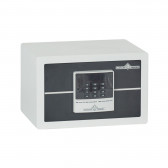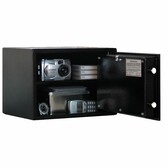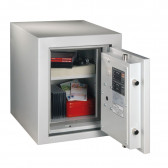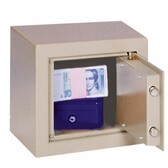One of the most useful skills a child can be taught is how to manage her/his own finances, which at the early years stage comes from the weekly or monthly pocket money paid out. At a time when a child's needs are 100% met by their earning parents, pocket money does not (and probably should not) have to be a large amount, but it is important for children to know the value of every zloty they have. Both the market value, i.e. how much can be bought for a given amount, and the value of the work that has to be done to earn it.
Why is pocket money a good idea?
An amount paid out at regular intervals, say PLN 10 per week, is a great idea to familiarise the child with financial management, which will result in independent financial decision-making and the ability to consciously manage one's own assets, income and expenses in the future. A regular income in the form of pocket money gives the kid a sense of stability in building their own independence, and at the same time the belief that by putting away enough they will be able to afford something more expensive. It can therefore help to develop the habit of saving. This kind of motivation and calculation today will allow the child to estimate in how many weeks he or she will be able to afford the skateboard of their dreams, and in the future, in adulthood, they will determine in exactly the same way whether they will be able to afford a new phone, computer, car or foreign holiday.
How much is money worth?
From the very first years, it is a good idea to familiarise children with the function of money in the world. If you take your child to the shop and he or she asks you for a chocolate or a small toy, let them make the transaction themselves. For toddlers it's great fun, put the goods and money on the counter, the lady or gentleman cashier beeps the scanner and behold the shopping is done. For children, especially toddlers, the difference in value of banknotes is not obvious, and the reason why a handful of clanking and much heavier coins are worth much less than a single lightweight note conflicts with children's intuition.
Every zloty earned has a value expressed in terms of the time and effort required to earn it. Paradoxically, it is quite easy to teach this. If a child needs money "for now" and pocket money is a little lacking, give him or her an activity, obviously of a level of complexity appropriate to age and ability. This could be doing something around the house that they don't usually do, helping with shopping or preparing a meal. In this way, one learns the satisfaction that working with one's own hands is the easiest way to gain something.
What kind of safe for a child?
The safe as part of a child's upbringing is not just a more modern piggy bank. As far back as the old world is concerned, children loved places for storing treasures, favourite toys or, later on, petty cash. Giving your child a safe in which they can keep only known trinkets can be a good idea that is also aimed at encoding into your offspring the need to keep safe what is most important.
Which safe you present to your child will naturally depend on his or her age. It would be ridiculous to put a 300-kg safe in a child's room. A toy that only resembles a safe will suffice for a few-year-olds, but you can take the risk a step further. It goes without saying that no one will break into such a safe, so a device such as a hotel safe will be enough. It is important that it has an easy-to-use electronic lock and the possibility of emergency opening with a key in case your child forgets the code. Our advisors will provide you with the information you need and will recommend specific products to help you decide.
If your child owns such a safe and only he/she knows the access code, he or she will have a feeling of security, privacy and at the same time will become familiar with the functioning of this type of device, as it is not excluded that they will decide to buy professional equipment in adulthood.
You may be interested in: Is it worth buying a safe from a supermarket?
Individualisation – why not?
Children's imagination seems to have no limits. Since this kind of piggy bank is our gift to the child, let's give him or her some freedom to create his personal item. We're not talking about the shape of the safe, because we won't change it, but, for example, decorating the outside part. The body can be given a different colour by covering it with coloured paper, and the door of the safe can be "fitted out" with additional elements such as an alarm button or an imitation of a fingerprint reader. A product personalised in this way should discourage a possible intruder from trying to break in.
Are child safes a good idea?
In our opinion, yes. They teach the orderly storage of valuables in a single, well-defined place, while defining one's private zone, to which even parents do not have access. Taking care of one's own security and privacy is insanely important in adulthood and develops sound and desirable habits. Therefore, if we agree that from early childhood it is good to familiarise the wards with the principles of economics and asset management, it is also worth teaching to take care of its proper storage.





